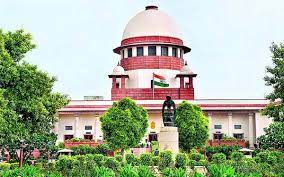The recent directives from the Government of the UT of J&K, reiterated by the Principal Secretary to the Government, Power Development Department, underscore a crucial aspect of governance: discipline within the ranks of Government employees. The firm stance against demonstrations and strikes, as enshrined in both statutory regulations and judicial precedents, is a necessary step towards ensuring the smooth functioning of public services and upholding the rule of law. The decision to crack down on unauthorised demonstrations and strikes comes in the wake of repeated non-compliance with earlier directives and the explicit judgement of the Supreme Court of India. It is imperative to recognise that, while the right to protest is a fundamental aspect of democracy, it must be exercised within the bounds of legality and with due regard for the greater welfare of society. The Supreme Court’s ruling unequivocally establishes that Government employees do not possess an inherent right to strike. The court rightly emphasizes that in a democratic welfare state, grievances must be addressed through established mechanisms rather than through disruptive actions that adversely impact society at large. Strikes, though a legitimate form of protest in certain contexts, can lead to chaos and hinder the delivery of essential services, thereby undermining the very fabric of governance.
Moreover, the existing legal framework, including the J&K Government Employees (Conduct) Rules, expressly prohibits Government employees from resorting to strikes or demonstrations concerning their service matters. Furthermore, the J&K Civil Services (Recognition of Service Association) Rules outline the responsibility to uphold the standards of conduct expected of Government servants. Any failure to adhere to these standards may result in the withdrawal of recognition by the Government. Jammu and Kashmir has already experienced a significant strike by PDD employees in 2021, placing additional strain on the PDD, which is already grappling with numerous challenges. As the Government navigates negotiations with unions, it considers various factors, including financial constraints. Given the circumstances, it is prudent to steer clear of confrontational approaches.
Trending Now
E-Paper


